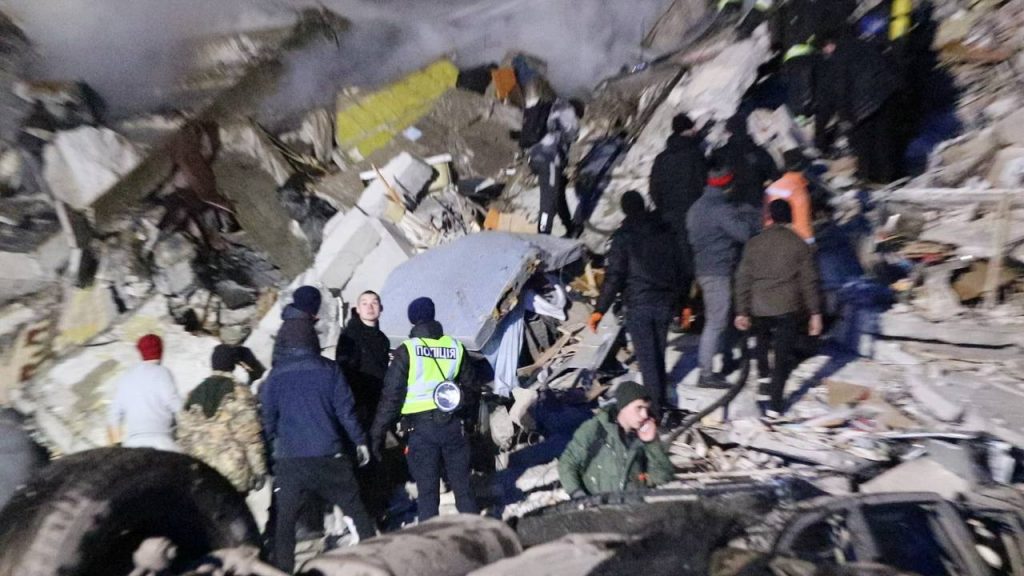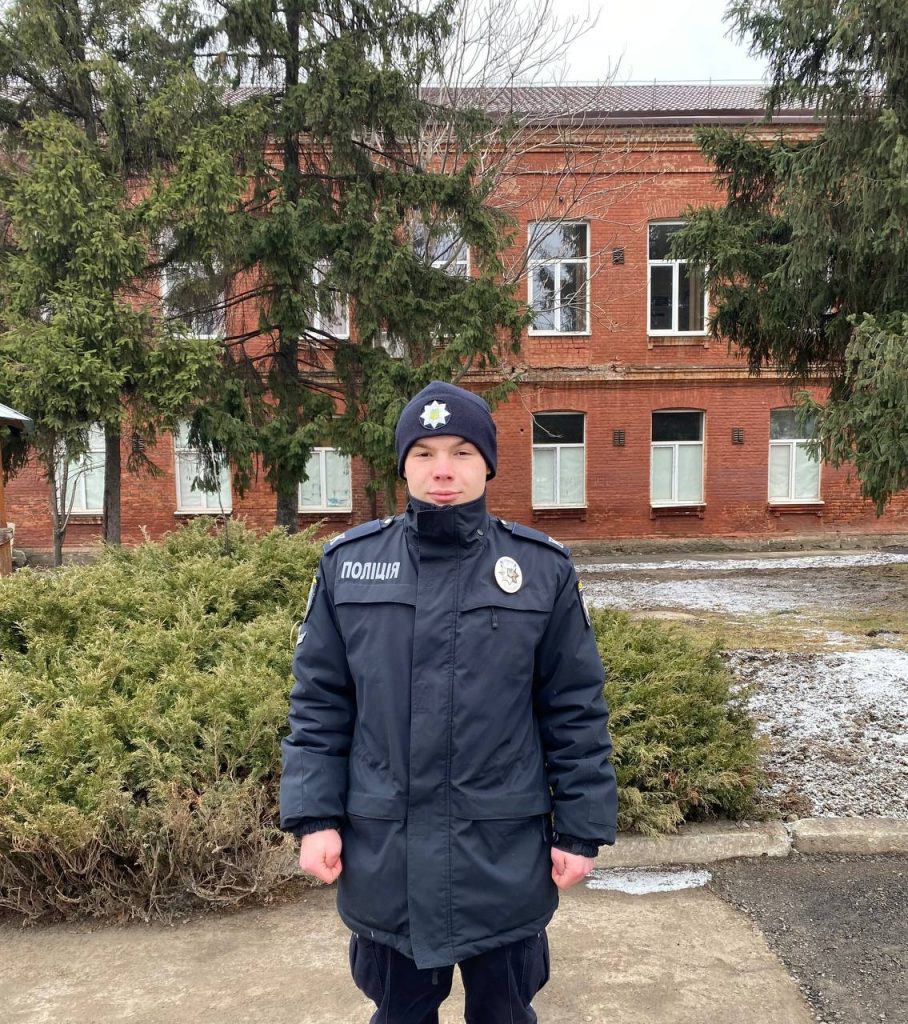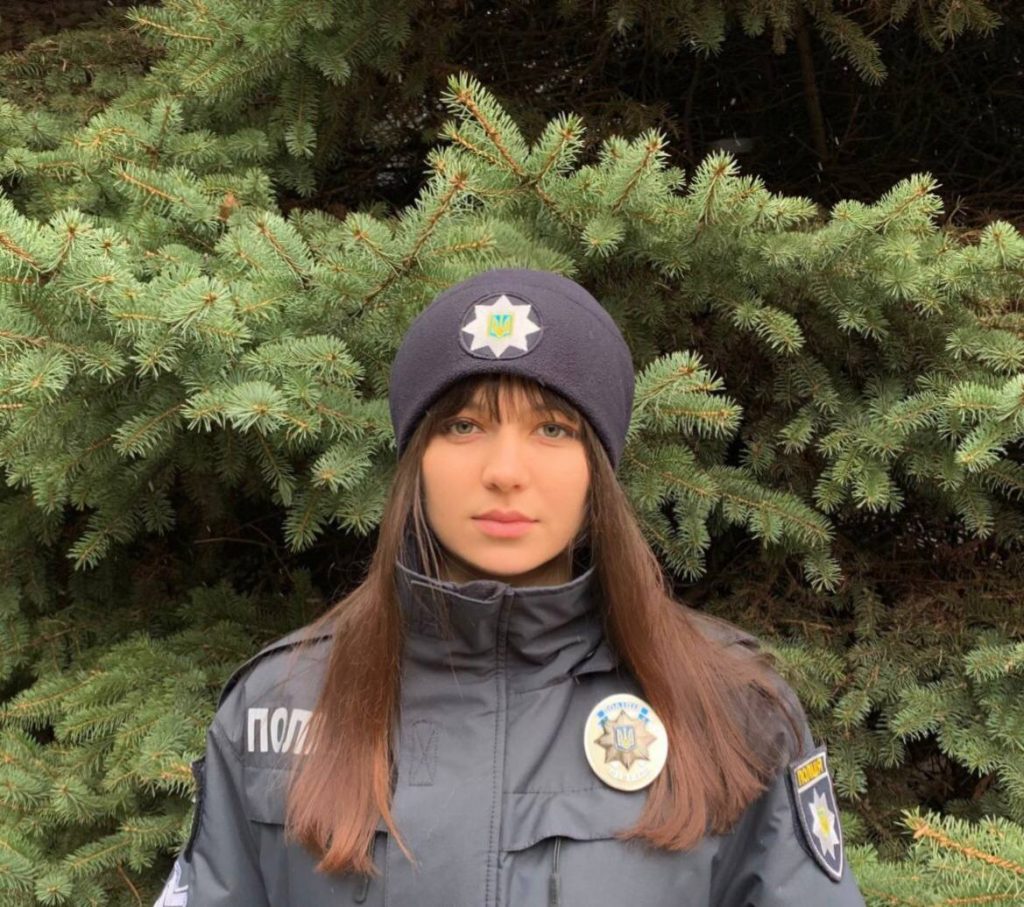They ensured the protection of public order, dismantled debris, helped the victims to get out of dilapidated apartments, and prepared hot drinks and food together with volunteers in tent cities. We have collected the stories of cadets and students of the Dnipropetrovsk State University of Internal Affairs who were not left out of the tragedy at the Peremoha housing estate. The boys and girls did everything they could to save the lives of the victims of the russian missile strike.

One of the first to arrive at the scene of the explosion was Oleksandr Zabludskyi, a first-year cadet at the National Institute of Law and Specialist Training for National Police Units. The guy lives nearby. Together with the rescuers and policemen, he sorted out the debris during the first three hours after the tragedy.

“Almost immediately, a girl, apparently 12-14 years old, was found under the rubble. She was in a state of shock – she hardly answered our questions. They got it, she was taken away by an ambulance. Then they began to clear the area near the house so that a fire truck could drive up there. At that time, on the top floor in the destroyed bathroom, a woman was begging for help, she was hysterical, she could fall from the height at any moment,” the cadet says.

According to him, the territory was cleared quickly. Many people rushed to help the rescuers. They overturned cars, dragged it away with their bare hands. Having created a living chain, they dismantled the debris brick by brick all night.

“Later, the police set up “borders” so that people would not interfere with the work of the State Emergency Service of Ukraine. And there I, together with others, helped to remove large debris. The screams and groans of people did not give fatigue any chance. At that moment, I felt fierce hatred for the occupiers, the thirst for revenge did not let go, revenge for Ukraine, every city, every dead adult and small Ukrainian, my native Mariupol,” the cadet added.
On March 16, Oleksandr Zabludskyi left occupied Mariupol together with his younger brother. The road was difficult and dangerous: constant shelling, searches, and interrogations at checkpoints. The boy did not expect that he would have to experience an even more terrible day in the Dnipro

The next day, cadets of the Dnipropetrovsk State University of Internal Affairs were involved in maintaining public order in the area of the russian missile strike. According to them, it was a real test of endurance and patience, precisely from a psychological point of view.
The future police officers made sure that the citizens did not go beyond the fenced area. Relatives of the victims, who were under the rubble, were simply forcibly dragged away from the danger zone. They shouted, asked to respond to their own, and called them by name.
For 4 days, the cadets of DSUIA were on duty in the neighborhood where the tragedy occurred. They controlled access to buildings and checked documents certifying a person and confirming his residence in a particular apartment. People were escorted to their homes so that they could take warmth and other things they needed that survived. Thus, cadets together with police officers made it impossible to commit thefts in open apartments.

“When I spoke with the victims, I was once again convinced that police officers should have the skills of psychological support in critical situations. For example, on the third day after the tragedy, a crying woman came to me, she begged to find her cat Sima, who was left in a dilapidated apartment without food or water. She was in despair, the pet may be the only thing she has left,” recalls Zemfira Cheremisina, a 3rd-year cadet at the Faculty of Criminal Police.

The girl told other stories. Many people in a panic did not understand what to take from the apartment. They were just trying to get it all out at once. It was necessary to calm them down, to carry out stabilization measures, which the cadets of the DSUVS learned in special training classes in psychology at the university.

Many initiative cadets and students helped volunteers in the tent cities. They prepared hot drinks and food for victims, rescue workers, and police officers. They helped with resettlement, and transport with warm things brought by the townspeople.
Immediately after the tragedy, Vladyslav Putsakov, a cadet of the 2nd year of the National Institute of Law and the National Police, joined the volunteer team. The guy took on any business.

“I helped the volunteers of the Red Cross Society to set up a tent and then performed tasks as needed. Collected warm clothes for the victims, brought food from the stores, helped with the preparation of food and drinks in the field kitchen. When I finished one job, I started another: I dismantled debris and cleared the territory,” he said.

There are many such stories. The large and friendly family of DSUIA did not remain aloof from the troubles of their compatriots. Those who could not personally come to the scene of the explosion transferred funds to the victims’ accounts and provided housing, transport, clothing, or food. In a word, the charitable chain of support and mutual assistance seemed quite strong. And every day he adds new good deeds.
— 853

